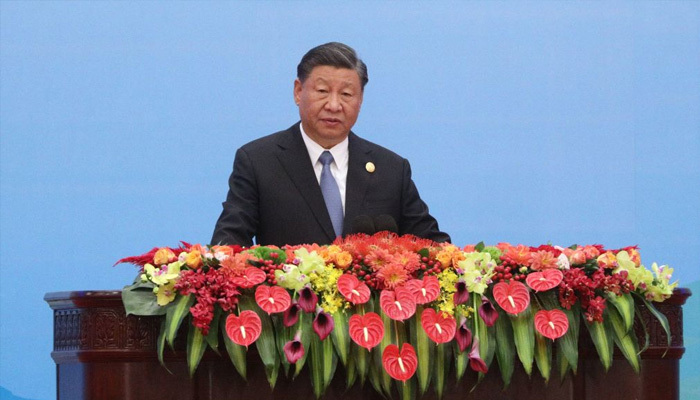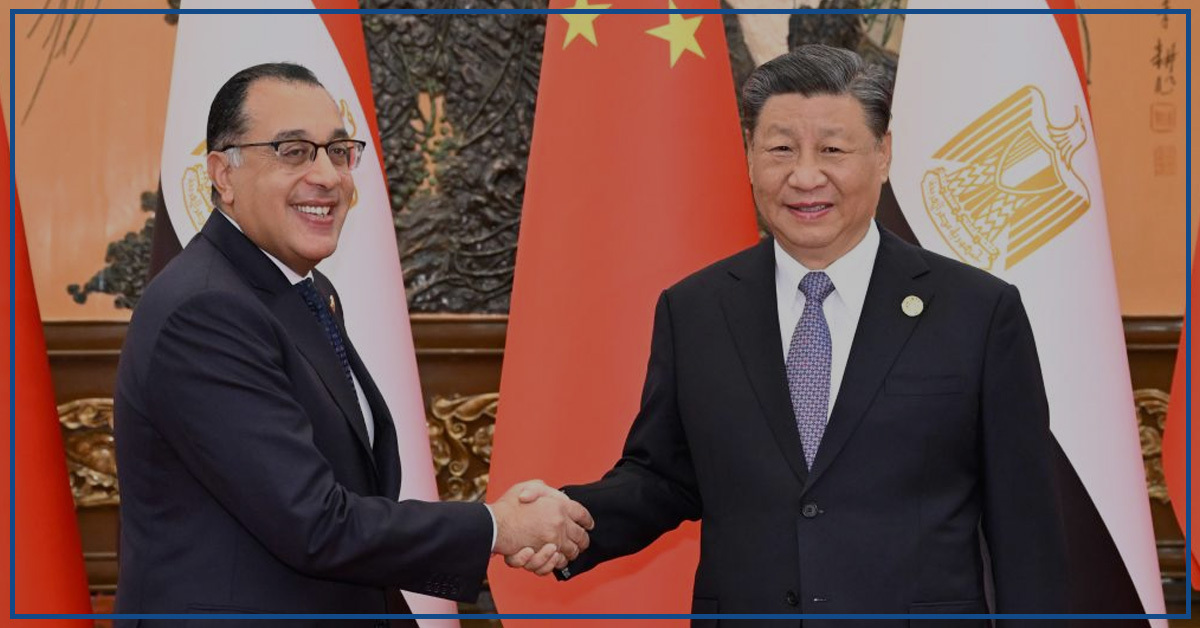In a significant diplomatic move, Chinese President Xi Jinping engaged in talks with Egypt’s Prime Minister Mostafa Madbouli on Thursday, with a focus on promoting stability in the Middle East. This dialogue unfolded against the backdrop of escalating Israeli aggression on Gaza, which cast a shadow of uncertainty over the region.
Historically sympathetic to the Palestinian cause, China has repeatedly supported a vague two-state proposal as a potential solution to the long-standing deadlock in the Middle East.
During the meeting, Xi reiterated China’s commitment to a “two-state solution” aimed at achieving peaceful coexistence between Palestine and Israel, as reported by various state media outlets.
Xi emphasized China’s willingness to bolster cooperation with Egypt, stating, “China is willing to enhance cooperation with Egypt to inject more certainty and stability into the region and the world.”
Additionally, he expressed Beijing’s readiness to collaborate with Cairo in safeguarding international fairness, justice, and the common interests of developing nations.
Recognizing Egypt’s vital role in de-escalating the situation, Xi extended his support to Egypt’s efforts in establishing humanitarian corridors. He underscored the importance of preventing the situation from further deterioration, averting a humanitarian crisis, and prioritizing an early ceasefire and cessation of hostilities.
In the wake of the United States’ recent veto of a UN Security Council resolution seeking a “humanitarian pause,” China reiterated its calls for an end to violence.
Foreign Ministry spokesperson Mao Ning expressed deep disappointment over the U.S.’s obstruction and urged the Security Council to fulfill its role in achieving a ceasefire and ending the conflict.

On the same day, Egyptian President Abdel Fattah al-Sisi and Jordan’s King Abdullah II met in Cairo to discuss the “collective punishment” of Palestinians in Gaza, which they vehemently condemned. The leaders reaffirmed their unified stance against policies of collective punishment involving siege, starvation, and displacement of Palestinians.
Expressing concerns about regional spillover effects, Sisi and King Abdullah warned that if the conflict persisted, it could potentially plunge the entire region into catastrophe, according to the Jordanian statement.
While originally scheduled to meet with U.S. President Joe Biden and Palestinian President Mahmud Abbas in Jordan, the leaders canceled the meeting following a deadly Israeli strike on a Gaza hospital.
Simultaneously, UN Secretary-General Antonio Guterres visited Cairo to assess the situation and explore avenues for diplomatic intervention.
Additionally, Egyptian President Sisi discussed the Gaza situation with U.S. Central Command Chief Michael Kurilla, further underscoring Egypt’s active role in addressing the crisis.
In a parallel development, Turkish Foreign Minister Hakan Fidan engaged in discussions with his Egyptian counterpart Sameh Shoukry regarding the Israeli attacks on Gaza, though no specific details about the call were provided.
As tensions continue to mount in the Middle East, diplomatic efforts are in full swing to mitigate the crisis and ensure the safety and well-being of those affected. The world watches closely as global leaders collaborate to bring stability to a region plagued by conflict and uncertainty.





